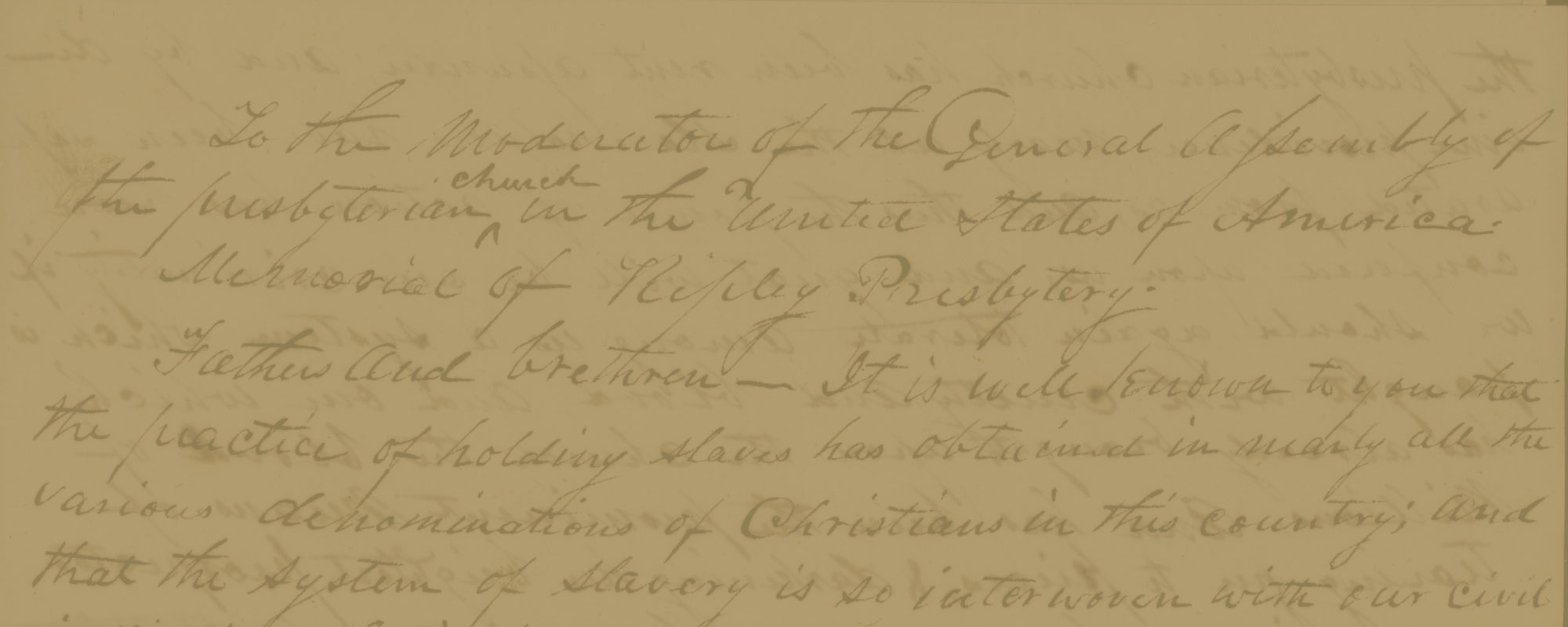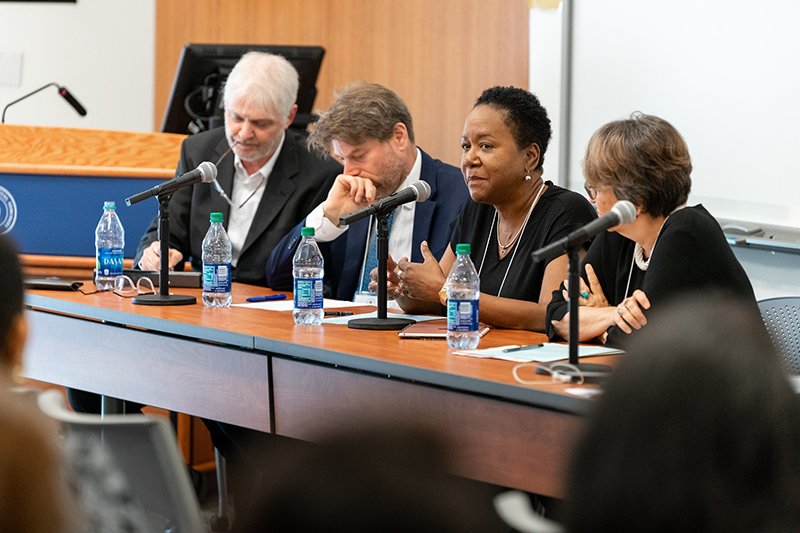
Princeton Seminary and Slavery
A Journey of Confession and Repentance
Introduction
When Princeton Theological Seminary was founded in 1812, it was part of a national culture and a local community that were deeply entangled in slavery. The faculty and students at Princeton Seminary in its early years through the Civil War would have encountered slavery as a familiar aspect of life. It was part of the context of their theological studies in this place. Just as they were shaped by their context, the faculty and graduates of Princeton Seminary also shaped the town of Princeton and other communities around the country where they served. As theologians and religious leaders, they spoke with moral authority about the questions of their day. But they were not of one mind about the ethical evaluation of slavery. Nor did their personal practices always align with their professions of theological conviction.
The following report begins to trace the complicated story of Princeton Seminary and its relationship to slavery. From its founding aspirations, Princeton Seminary has placed high value on both rigorous scholarship and Christian faith, and a commitment to these values informs our present study of the Seminary’s history, which is both an act of faith and scholarly investigation. These efforts are part of an honest and transparent evaluation of our past. Truth-telling is an important discipline for Christian people. It is critical that we understand the truth about our history, for only then can we make confession and move toward the reconciliation that God desires for us all.

Overview
In the spring of 2016, President Craig Barnes commissioned a committee of faculty and administrators to examine the institution’s historic connections to slavery. This committee studied everything from the demographics of the student body to activities of alumni. They examined the relationship of the Seminary’s founders to slavery, the economic base of the facilities, and the participation of faculty and board members in the American Colonization Society. The historical audit report, which is the product of more than two years of research, uncovers contradictions and complexities in the practices, attitudes, and theological convictions of the Seminary’s early faculty, students, and donors. It clearly depicts both profound moral failings and courageous acts of faithfulness to the Gospel.
This research provides a critical reckoning with our past, and was the basis for a year-long conversation involving the entire Seminary community about the ongoing legacy of racism that is rooted in this history. As a school related to the church, Princeton Seminary has a responsibility to reckon with its history in a theological framework, making confession and repentance when necessary, recognizing the human failures and frailties that damage our relationship with God and the world God so loves. Confession of sin and repentance have always been vital to the health of a spiritual community.
On October 18, 2019, our Board of Trustees unanimously adopted a multi-year plan to repent for the Seminary’s relationship to slavery and to commit to tangible action to shape our community’s future in meaningful, lasting ways.
Questions?
Thank you for visiting our website. If you are interested in finding out more about our study programs, please submit an inquiry using our feedback form.
Submit an Inquiry




